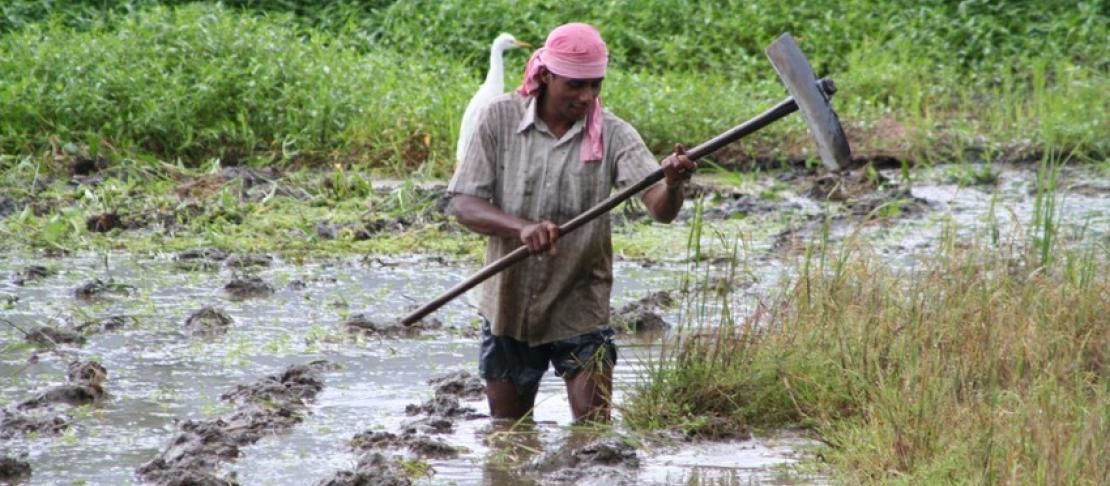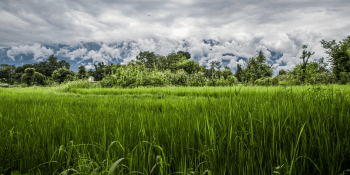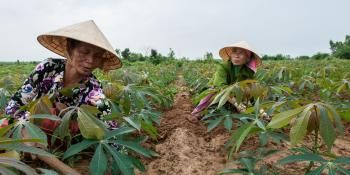Climate threats and solutions for the world's rice bowl

Southeast Asia is often called the world's 'rice bowl', due to the region's important role in the world rice trade. In fact, agriculture is the backbone of most economies in the region. But rapid climate change, which is likely to intensify droughts and floods, could devastate Southeast Asia’s agriculture, threatening the livelihoods of millions of people across the region, not to mention global food security.
National Geographic has picked up on these messages, which we highlighted at last month's conference on Climate Smart Agriculture in Asia: Research and Development Priorities.
National Geographic published an interview with Bruce Campbell (program director for the CGIAR Research Program on Climate Change, Agriculture and Food Security - CCAFS) and Matthew McCartney (from the International Water Management Institute - IWMI) about the expected impact of climate change on the region, and what adaptation strategies will be needed to ensure future food security:
Some changes are apparent already. For instance, steadily rising sea levels have already led to an increase in the salinity of the water in Vietnam's Mekong Delta, where the Mekong River empties into the South China Sea. This has forced some people in the region to abandon rice production and shift to shrimp farming.
"In a way, they're prospering from the change because they make more money raising shrimp than from rice," said Matthew McCartney [...] "But not everybody has the capability to do that. Some people are adapting, but others are losing out as a consequence of sea level rise."
[...] "In Asia, there's the possibility that you're really going to have to think more about radical transformations in order to adapt, as the shift from rice to shrimp illustrates," Campbell said.
Read more:
2 May 2012 Scientists Race to Save World's Rice Bowl From Climate Change. National Geographic Daily News
25 April 2012 Climate smart agriculture in Asia – report back from Bangkok. CCAFS Blog

